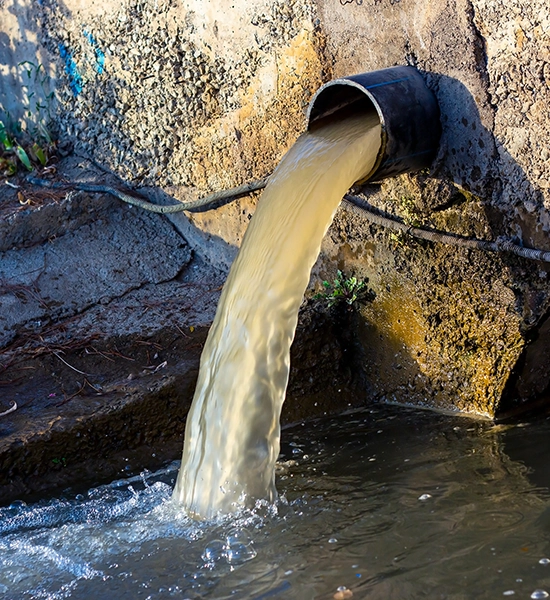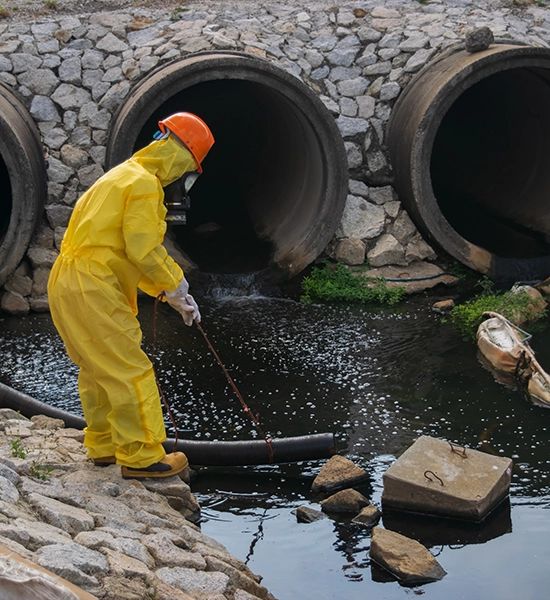Groundwater Testing
Roughly 50% of drinking water in the United States is sourced from groundwater. Groundwater is also an important source of water for irrigation. Unfortunately, groundwater is susceptible to pollutants from many sources. Pesticides, fertilizers, road salts, and used motor oil can easily migrate into groundwater. Untreated waste from septic tanks, toxic chemicals from underground storage tanks, and leaky landfills can also contaminate groundwater over time. Pace® provides testing services for groundwater contaminants from these sources and many more.

How Is Groundwater Regulated?
Every state has its own challenges when it comes to managing and containing groundwater contamination. Therefore, groundwater regulations can vary widely by state and even by individual water districts. Pace® is an accredited groundwater lab in all states with a lab accreditation program.
The Resource Conservation and Recovery Act (RCRA) addresses groundwater contamination at the federal level. This act governs the handling, storage, and disposal of solid and hazardous waste, two primary sources of groundwater contamination. Other programs administered by the United States Environmental Protection Agency (EPA), such as the Comprehensive Environmental Response, Compensation, and Liability Act (CERCLA), are also designed to address environmental contamination, including groundwater.
Sources Of Groundwater Contamination
There are many sources of groundwater contamination. Here are some of the most common.
Various industries, particularly those related to chemicals, metals, petroleum, and textiles, may release contaminants such as heavy metals, organic compounds, toxins, and microorganisms in wastewater and stormwater runoff. If not properly managed, these wastes can pollute groundwater, which serves as a critical source of drinking water for many communities.
Underground storage tanks (USTs) are often used to store gasoline, heating oil, and other chemicals. There are estimated to be over 4 million storage tanks buried in the United States and approximately 542,000 underground storage tanks that store petroleum or hazardous substances. Contaminants that leak into the groundwater from storage tanks can affect drinking water supplies for decades.
According to the EPA, more than 20% of homes in the United States depend on a septic system to treat their wastewater. Instead of sending wastewater to the public treatment facility, these systems allow human waste to drain underground at a slow, harmless rate. Septic systems that are improperly designed or maintained can contaminate groundwater with bacteria, viruses, nitrates, and many other unpleasant contaminants.
Pesticides and fertilizers include herbicides, insecticides, fungicides, rodenticides, and algaecides. These products are vital for agriculture and also used by homeowners, municipalities, and businesses. As these chemicals accumulate on lawns and crops, they can be transported by stormwater runoff to surface waters and eventually migrate to groundwater.
Municipal Solid Waste Landfills are designed with a protective bottom liner (clay and plastic) to prevent contaminants from leaching into the groundwater. Landfill liners are not impregnable and, as a result, groundwater monitoring programs are required by permit.
Construction and Demolition (C & D) landfills frequently are not lined, and contaminants, such as PFAS, have the potential to leach into the groundwater.
Road salt is often used to melt ice on roadways. In areas where the use of road salt is widespread, it can become a major contaminant. When ice and snow melt or during rain events, runoff may seep into the ground allowing the salt to migrate to groundwater.
Since groundwater is part of the water cycle, contaminants in other parts of the cycle, such as the atmosphere or surface water, can eventually be transported to groundwater supplies.

Groundwater Testing Services
Whether contamination takes place over decades or is a result of an accidental release, protecting public health and mitigating risks requires reliable, fast testing services with defensible results. Pace® has provided compliance testing and other groundwater analysis services for more than three decades. Some of the groundwater contaminants we most frequently test for include:
Additional Resources
Need to find a lab that can handle your unique requirements?
Contact us directly or download our list of environmental certifications across our network.
When disaster strikes, the Pace® Environmental Emergency Response Team is here to help you act fast.